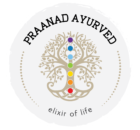
Ayurvedic approach in depression
Depression is a common mental health problem that affects people all over the world. Depression is recognized by Ayurveda, the ancient Indian medical system, as a mental imbalance caused by an imbalance of the three doshas – Vata, Pitta, and Kapha.
The Ayurvedic approach to treating depression is holistic, aiming to balance a person’s physical, mental, and emotional well-being. In this article, we will go over depression in Ayurvedic terms.
According to Ayurveda, Depression is caused by:
Depression, according to Ayurveda, is caused by an imbalance of the three doshas – Vata, Pitta, and Kapha. Each dosha is associated with different types of depression symptoms. Anxiety, fear, and insomnia can result from a Vata dosha imbalance. Anger, irritability, and frustration can result from a Pitta dosha imbalance. Lethargy, apathy, and sadness can result from a Kapha dosha imbalance.
Ayurvedic approach to depression treatment:
Ayurvedic depression treatment consists of a combination of lifestyle changes, herbal remedies, and dietary changes.
Lifestyle changes:
Ayurveda emphasises the importance of following a daily routine, or Dinacharya, which includes a regular sleep cycle, exercise, and meditation. Yoga and pranayama practise can help to calm the mind and reduce stress.
Ayurveda also suggests spending time in nature, getting enough sunlight, and avoiding negative influences like social media and the news.
Herbal remedies:
To balance the doshas and treat depression, Ayurveda employs a variety of herbs and natural remedies. Some of the herbs used to improve mental health and reduce stress include Ashwagandha, Brahmi, Shankhpushpi, Jatamansi, and Guduchi. These herbs are available in powders, capsules, decoctions (herbal teas) & other complex herbal formulations.
Dietary changes:
Ayurveda believes that the food we eat has a significant impact on our mental and physical health. A healthy diet rich in fruits and vegetables, whole grains, and healthy fats can help alleviate depression symptoms.
Ayurveda also advises against consuming processed foods, caffeine, and alcohol, as these can upset the dosha balance.
Ayurveda has a number of complex formulations that can help with depression management. Here are a couple of examples:
Ashwagandharishta: Ashwagandha (Withania somnifera) is a powerful adaptogenic herb that can help reduce stress and anxiety while also improving mood. Ashwagandharishta is an Ayurvedic tonic derived from the herb ashwagandha (Withania somnifera). Ashwagandharishta is thought to have a variety of health benefits, including improved digestion, reduced stress and anxiety, increased immunity, and increased overall vitality.
Brahmi Ghrita: Brahmi (Bacopa monnieri) is another herb known for its cognitive enhancing properties. Brahmi Ghrita is a ghee-based formulation that can aid in the improvement of memory, concentration, and mental clarity, as well as the reduction of anxiety and depression.
Brahmi Vati: Brahmi vati is thought to have a calming effect on the nervous system, which can help with anxiety and stress reduction. It is thought to promote relaxation and improve sleep quality. Brahmi vati may be beneficial to those suffering from depression. It is thought to promote a sense of well-being and can aid in the treatment of depression symptoms.
Saraswatarishta: Saraswatarishta is an Ayurvedic tonic made up of herbs such as Brahmi, Shankhapushpi (Convolvulus pluricaulis), Jatamansi (Nardostachys jatamansi), and Vacha (Acorus calamus). It is thought to boost brain function, promote mental relaxation, and alleviate anxiety and depression.
Conclusion:
Depression is a serious mental health disorder with serious consequences for a person’s well-being. Ayurveda takes a holistic approach to treating depression by addressing the underlying cause of the problem – dosha imbalance.
Ayurveda can help improve mental health and reduce depression symptoms by making lifestyle changes, using herbal remedies, and eating a balanced diet. However, before beginning any Ayurvedic treatment for depression, it is critical to consult with a qualified Ayurvedic practitioner.
